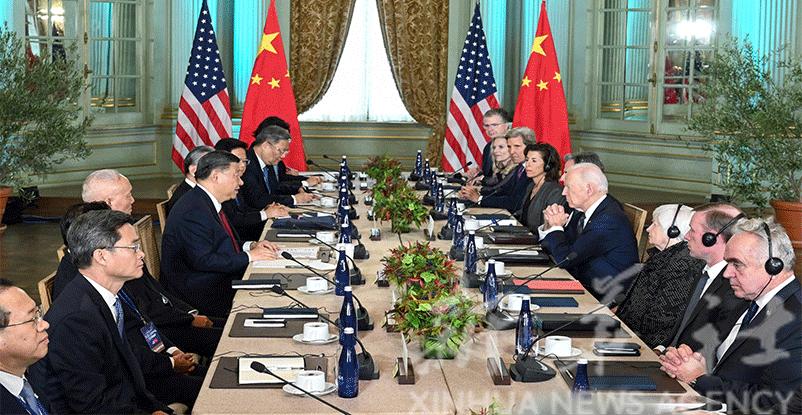
 Old Version
Old Version

Chinese President Xi Jinping meets with US President Joe Biden at the Filoli Estate, California, November 15, 2023 (Photo by Xinhua)
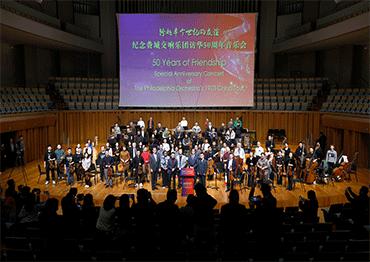
Philadelphia Orchestra stages a concert comprising Ludwig van Beethoven’s Symphony of Fate and Chinese folk instrumental “Moon over a Fountain” at the National Center for the Performing Arts in Beijing on November 10, 2023 to commemorate the 50th anniversary of the orchestra’s ffrst performance in China in 1973 (Photo by IC)

A Walmart Supermarket in Wuhan, Hubei Province is crowded with customers shopping for the Chinese Lunar New Year, January 19, 2023 (Photo by VCG)
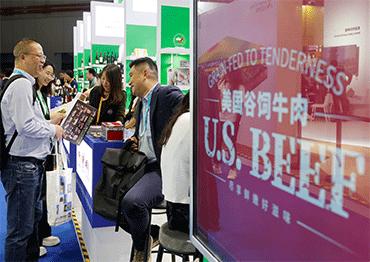
A pavilion jointly set up by AmCham Shanghai and the US Department of Agriculture opens at the sixth China International Import Expo (CIIE) in Shanghai starting on November 6, 2023. This has been the frst time for the US to launch an offcially fnanced pavilion in the CIIE (Photo by VCG)

Desmond Delanty, an American architect, inspires young Chinese with innovative approaches to refurbish local residences in Tonglu County, Hangzhou, August 15, 2019 (Photo by VCG)

Stephon Marbury, a former NBA all-star player turned three-time championship winner with the Beijing Ducks Chinese basketball team, exchanges basketball skills with overseas Chinese students from Northeastern Chinese Basketball League, a non-proft organization for the Chinese collegiate basketball tournament in North America, in the Manhattan View at MIMA, New York, May 8, 2018 (Photo by VCG)
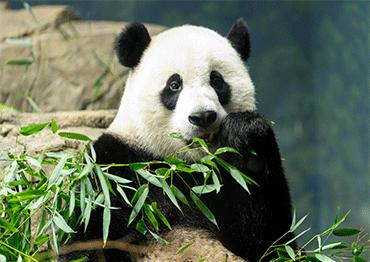
Giant panda Xiao Qi Ji (Little Miracle) eats bamboo in his enclosure at the Smithsonian’s National Zoo in Washington, September 28, 2023 (Photo by VCG)
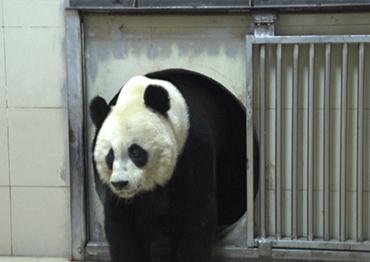
Giant panda Mei Xiang is quarantined upon her arrival in Chengdu, Sichuan Province, November 10, 2023. Having resided at the Smithsonian’s National Zoo in Washington since 2000, Mei Xiang returned to China with Tian Tian and their male cub Xiao Qi Ji, who was born in August 2020 (Photo by VCG)
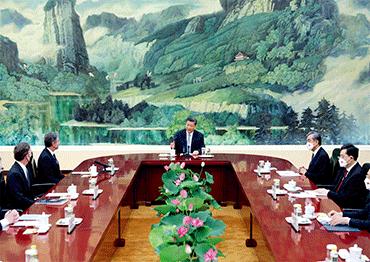
June 18-19, US Secretary of State Antony Blinken visited China, where he met with Chinese President Xi Jinping and Director of the Offce of the Central Commission for Foreign Affairs Wang Yi
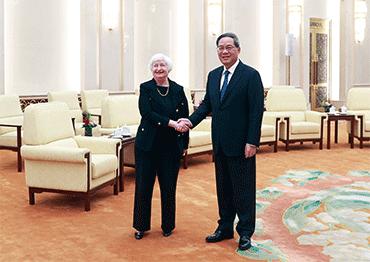
July 6-9, US Treasury Secretary Janet Yellen visited China and held talks with Chinese Premier Li Qiang, Vice-Premier Liu He, and China’s central bank governor Yi Gang
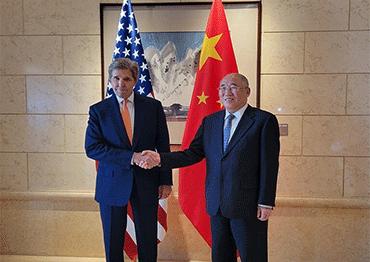
July 16-19, US Special Envoy for Climate John Kerry visited China and held talks with his Chinese counterpart Xie Zhenhua
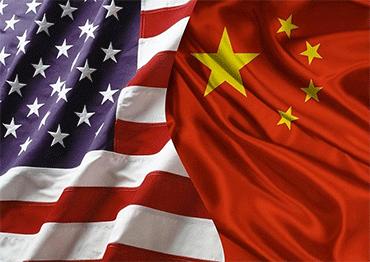
August 16, General Xu Qiling, Deputy Chief of China’s Central Military Commission Joint Staff Department, met with Admiral John Aquilino, Commander of the US Indo-Pacifc Command, at a defense ministers’ conference in Fiji
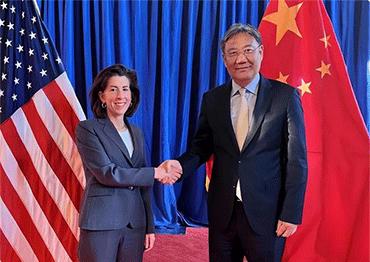
August 27-30, US Commerce Secretary Gina Raimondo visited Beijing and Shanghai, and met with Chinese Premier Li Qiang and Chinese Commerce Minister Wang Wentao
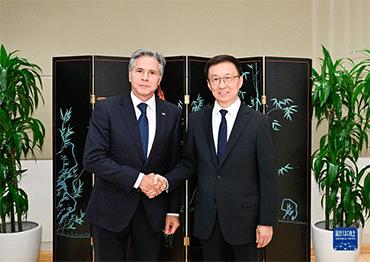
September 18, US Secretary of State Antony Blinken met Chinese Vice President Han Zheng on the margins of the 78th UN General Assembly in New York City
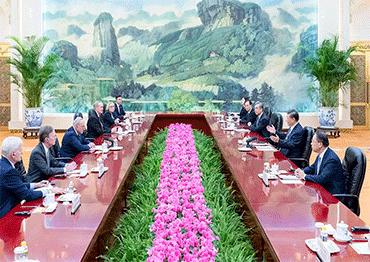
October 7, US Senate Majority Leader Chuck Schumer led a delegation of US lawmakers to China, where he met with Chinese President Xi Jinping and other Chinese offcials
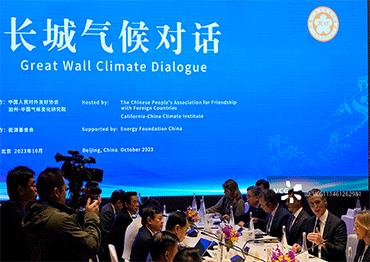
October 23-29, California Governor Gavin Newsom paid a weeklong visit to several Chinese cities, and held a “surprise” meeting with Chinese President Xi Jinping and other high-level offcials
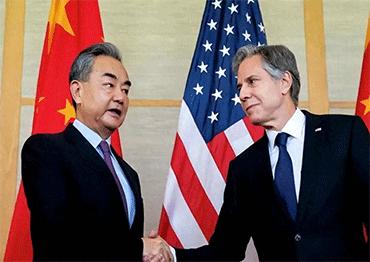
October 26-28, China’s Foreign Minister Wang Yi visited Washington, where he met with US President Joe Biden, US Secretary of State Antony Blinken and National Security Adviser Jake Sullivan
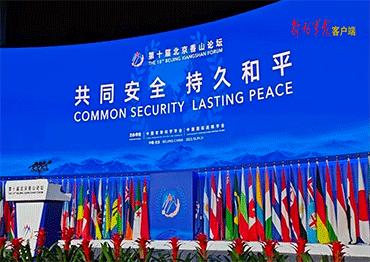
October 29 - 31, a delegation led by Cynthia Carras Principal Director for China and Mongolia, the US Offce of the Secretary of Defense, attends the 10th Beijing Xiangshan Forum, a cross-regional security dialogue platform
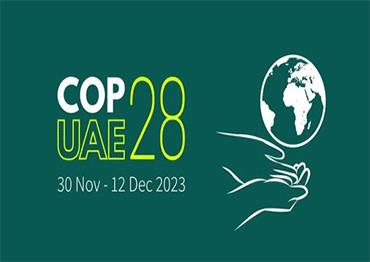
November 4-7, China’s Special Envoy for Climate Change Xie Zhenhua visited the US and met with US Special Envoy for Climate John Kerry
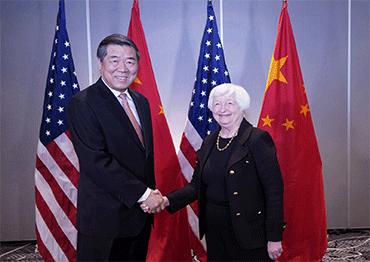
November 8-12, Chinese Vice Premier He Lifeng visited the US and met with various US offcials